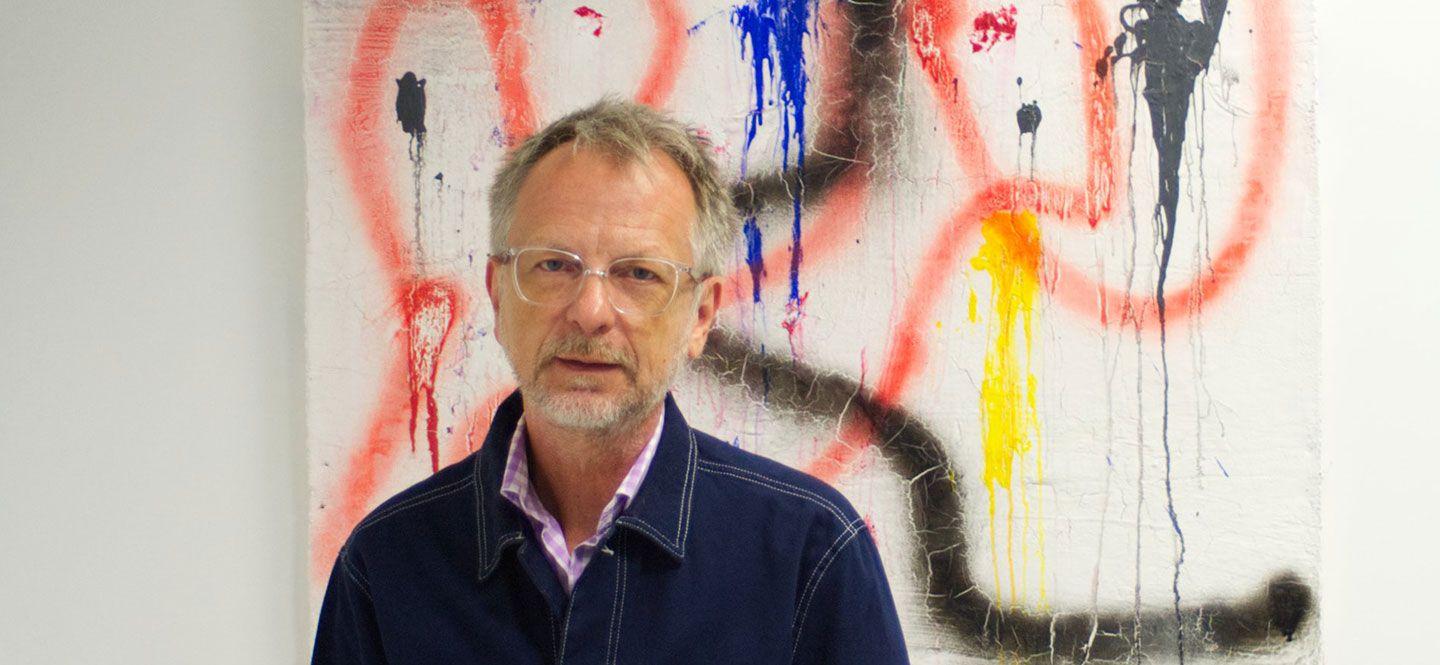Does Alzheimer's research need to change course?

Institut für Pathobiochemie, Johannes Gutenberg-Universität Mainz
There is still no cure in sight for Alzheimer's disease. According to Christian Behl, this is partly because research has been following a single lead for the past 30 years – and ignoring others in the process. The biochemist explained his criticism of Alzheimer's research in a conversation with Catherine Newmark that took place in Hanover on 9 June 2023.
Can it be that Alzheimer's research has been backing the wrong horse for decades? Christian Behl, professor at the University Medical Center Mainz, criticizes the "amyloid hypothesis". He says it has so far not achieved any significant therapeutic breakthroughs, but its decades-long dominance has prevented research into other promising approaches.
Only few experts share the euphoria
What is the "amyloid hypothesis" based on? It centers on the assumption that the deposition of beta-amyloid protein plays a central role in the development of Alzheimer's disease. Hence, up to the present, medical research has concentrated on finding a way to remove amyloid deposits from the brain by mobilizing existing defense cells. The buzzword "Alzheimer's vaccination" long ago became the focus of research programs on a previously unknown scale. However, the promised success has failed to materialize: "Active" immunization strategies, in which the immune system itself produces antibodies against beta-amyloid, come with too many side effects. And "passive" strategies, which use synthetically produced antibodies, show disappointingly low clinical efficacy.
Consequently, with funding from the Volkswagen Foundation, Christian Behl has written a book in which he details the development of Alzheimer's research, the various explanatory models, and his criticism of the decade-long fixation on the amyloid hypothesis. At the same time, he provides information about the neglected alternatives. On 9 June 2023, he will be a guest at Herrenhausen Palace in Hanover, where he will discuss the topic of Alzheimer's research with Catherine Newmark, who will be moderating the meeting. The event is aimed at a broad audience.
Four questions to Christian Behl
Professor Behl, recently the media have been quick to voice enthusiasm about the development of new drugs in the treatment of Alzheimer's disease. Do you share this euphoria? Are we about to witness the victory of research over Alzheimer's?
Only few experts share this euphoria. The press release from the pharmaceutical company Eli Lilly and the data so far released on the drug Leqembi from Biogen and Eisai also offer little cause for euphoria. The reported clinical effects are not at all convincing – nor are the considerable side effects to be disregarded. The calculated values for the slowing of cognitive decline after taking Leqembi are seen by many clinical colleagues to be of a magnitude that is unlikely to be observable in individual patients. Many antibody therapies with similar efficacy as Leqembi in removing amyloid from the brain have had no calculable positive effects; once again, research has chosen to ignore this. In summary: The new data, some of which are presented very optimistically in the media, neither represent a breakthrough in the search for a therapy nor a possible cure.
Has research been blind to other opportunities as result of doggedly clinging to the "amyloid hypothesis" for the past 30 years?
In my book, I have elaborated a whole series of alternative explanatory models and additionally developed my own model for the emergence and development of Alzheimer's disease. Especially in the 1990s, there were a number of new findings that were completely independent of the amyloid cascade hypothesis introduced at that time. However, they were obscured by the hype surrounding the biochemistry of the protein amyloid that was just emerging.
What action is needed by whom to bring about the liberation from the "amyloid straitjacket" you are calling for?
Science must be fundamentally objective, conducted without preconceived views regarding the outcome, and open to criticism. In order to fulfil these requirements, all researchers in the field must disclose their available data and be prepared to engage in critical discussion. All too often, though, we can observe a "confirmation bias". Research results are partly evaluated and interpreted in such a way that they fulfil one's own expectations and support the dominant hypothesis.
What messages should the audience go home with at the end of the discussion on 9 June at Herrenhausen Palace in Hanover?
The message I would like to convey to the audience is that Alzheimer's disease is a multifactorial brain disease influenced by many genetic risk factors, including experience in old age. The amyloid protein can play a role under certain circumstances and in the presence of specific risk factors. In many older people, and certainly in Alzheimer's patients, amyloid is an accompanying product that may – but does not have to – cause additional harm. In my opinion, however, the amyloid protein is not the initial cause of this complex brain disease. On this point, I disagree with most of my colleagues. It would be more accurate to speak of different Alzheimer's diseases – not just the one characterized by the deposition of amyloid. In my opinion, in many cases the deposition of amyloid in the brain is a characteristic of brain ageing and not necessarily negative.
Publication
Christian Behl's book, which is funded by the Volkswagen Foundation, was published in English by Springer Nature in July 2023:
"Alzheimer’s Disease Research: What Has Guided Research So Far and Why It Is High Time for a Paradigm Shift."
